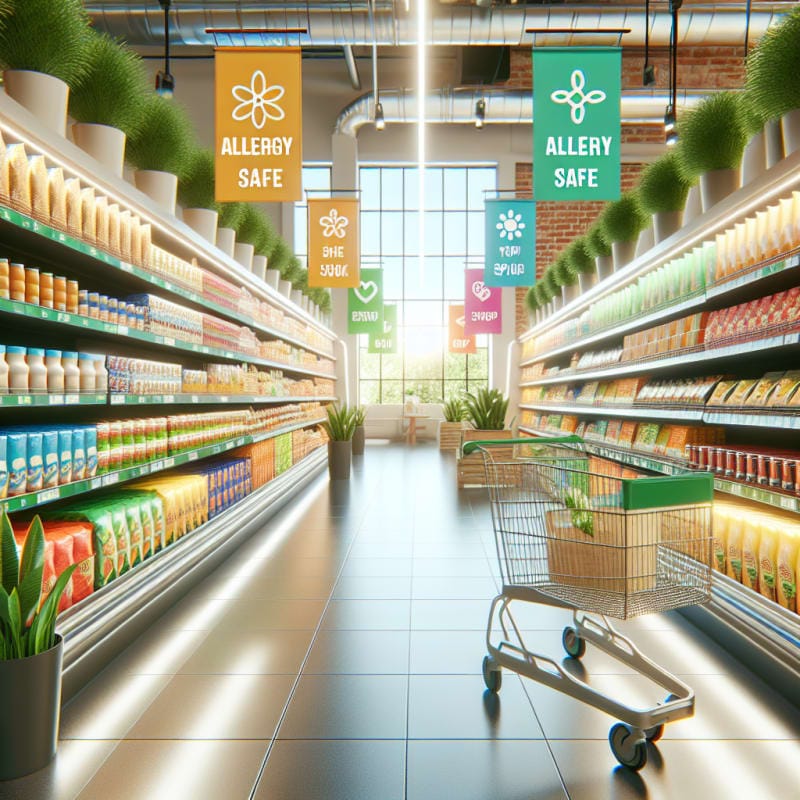Stew Leonard’s Workers Not Liable in NY Woman’s Allergy Death: What It Means for Food Safety and Allergy Law
Food allergies are a growing concern for millions of Americans, with the FDA estimating that 32 million people in the U.S. are affected [FDA]. In a recent case covered by Patch and Google News, Stew Leonard’s supermarket workers were found not liable for the tragic death of a New York woman who suffered a fatal allergic reaction after consuming food purchased from the store. This case raises important questions about food labeling, staff responsibility, and consumer protection for those with food allergies.
Understanding the Case: What Happened at Stew Leonard’s?
According to court documents and news reports, the woman died after eating a cookie containing peanuts, which was not clearly labeled as such. Her family argued that store workers failed to warn her, but the court ruled that individual employees were not personally liable. The focus shifted to broader issues of food safety, labeling laws, and the responsibilities of retailers.
| Key Issue | Details | Implications |
|---|---|---|
| Labeling | Cookie contained peanuts, label unclear | Highlights need for accurate allergen labeling |
| Liability | Employees not personally liable | Legal focus on company policies, not individuals |
| Food Safety | Allergen risk not communicated | Consumers must verify ingredients |
Food Allergy Law: Who Is Responsible?
Under current FDA regulations, food manufacturers and retailers must clearly disclose major allergens on packaged foods [FDA FALCPA]. However, enforcement varies, and cross-contamination or unclear signage can still put consumers at risk. In Europe, the EFSA (European Food Safety Authority) sets similar standards [EFSA].
- Retailers are responsible for proper labeling and staff training.
- Employees are generally not personally liable unless gross negligence can be proven.
- Consumers must remain vigilant and ask questions about ingredients.
Recent Food Safety Alerts and Regulatory Changes
Staying informed is essential for anyone with food sensitivities. Recent news includes:
- FDA recalls: Several bakery products recalled for undeclared allergens (FDA Recalls).
- New York Times: Reports on new labeling laws requiring clearer allergen information (NYT).
- Food Navigator: Coverage of plant-based reformulations and their impact on allergen risk (Food Navigator).
These developments mean that food brands are under increasing pressure to improve transparency, but also that consumers must stay proactive.
How Food Scan Genius Empowers Smart Food Choices
For people with allergies or dietary preferences, technology can be a lifesaver. The Food Scan Genius app (available at scangeni.us) allows users to scan barcodes and instantly see ingredient lists, allergen information, and dietary compatibility. This helps reduce the risk of accidental exposure and supports informed decision-making.
User Testimonial: “I have a severe peanut allergy, and Food Scan Genius has made shopping so much safer for me. I just scan and get instant alerts if a product contains peanuts or other allergens. Highly recommend!” – Jessica M., NY
Long-Term Implications: What Should Shoppers and Brands Do?
The Stew Leonard’s case is a wake-up call for everyone:
- Shoppers should always check labels and ask about ingredients, especially with fresh or bakery items.
- Brands must invest in better labeling, staff training, and digital tools to protect consumers.
- Regulators like the FDA and EFSA continue to update guidelines to improve safety, but enforcement and education are key.
As food trends evolve—such as the rise of plant-based and keto products—new risks and labeling challenges emerge. Staying informed and using smart tools like Food Scan Genius are the best ways to navigate these changes.
FAQ: Food Allergies, Liability, and Safe Shopping
- Q: Who is legally responsible if someone has an allergic reaction in a store?
A: Usually, the retailer or manufacturer, not individual workers, unless gross negligence is proven. [FDA] - Q: What are the most common food allergens?
A: Peanuts, tree nuts, milk, eggs, wheat, soy, fish, and shellfish. [PubMed] - Q: How can I check for allergens when shopping?
A: Use apps like Food Scan Genius or review ingredient lists and ask store staff. - Q: Are there new regulations on food labeling?
A: Yes, several states and countries have updated laws to require clearer allergen disclosures. [EFSA]
Conclusion: Why Ingredient Awareness Matters—and How to Stay Safe
Whether you have allergies, dietary preferences, or ethical food concerns, understanding what’s in your food is crucial. The Stew Leonard’s case shows that while legal responsibility may lie with companies, the best protection comes from informed choices. Use reliable resources, stay updated on recalls and regulations, and consider digital tools like Food Scan Genius to simplify safe shopping. Make every meal a smart, safe choice.
References
- FDA: Food Allergies
- FDA: FALCPA
- EFSA: Food Allergies
- PubMed: Food Allergy Overview
- Patch: Stew Leonard’s Allergy Death
- Google News: Stew Leonard’s Case
- NY Times: New Labeling Laws
- Food Navigator: Plant-Based Allergen Risks
- FDA: Food Recalls





